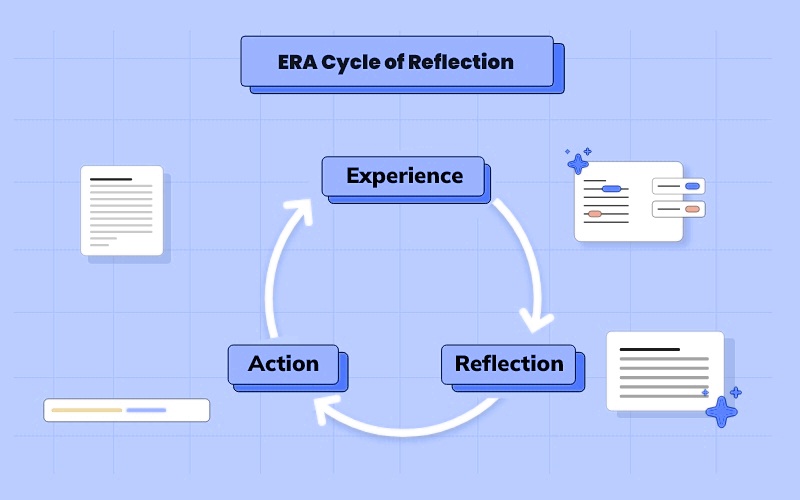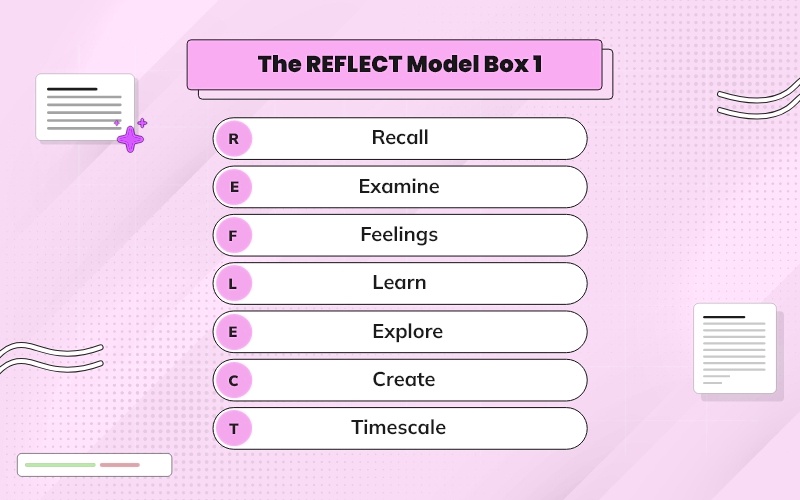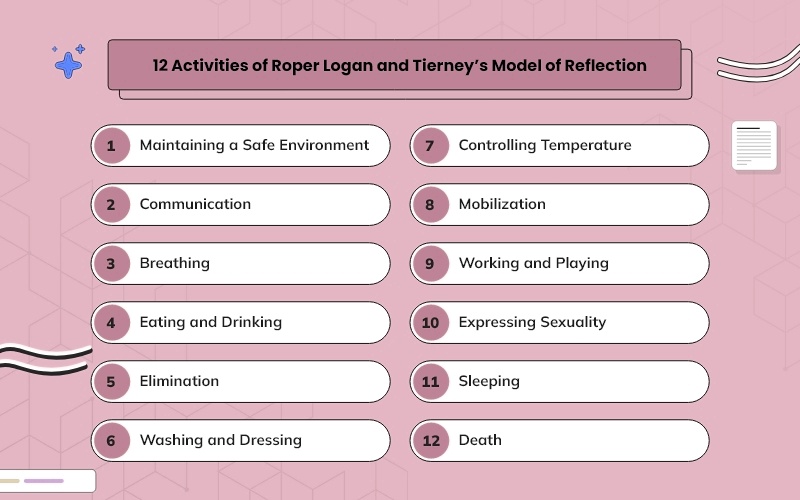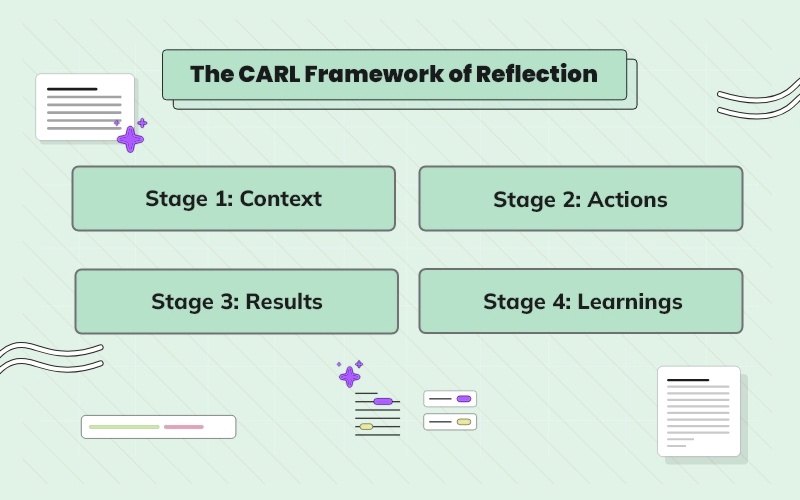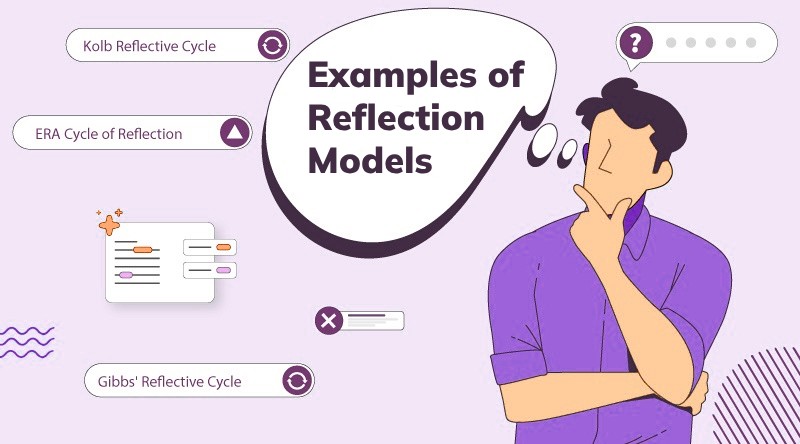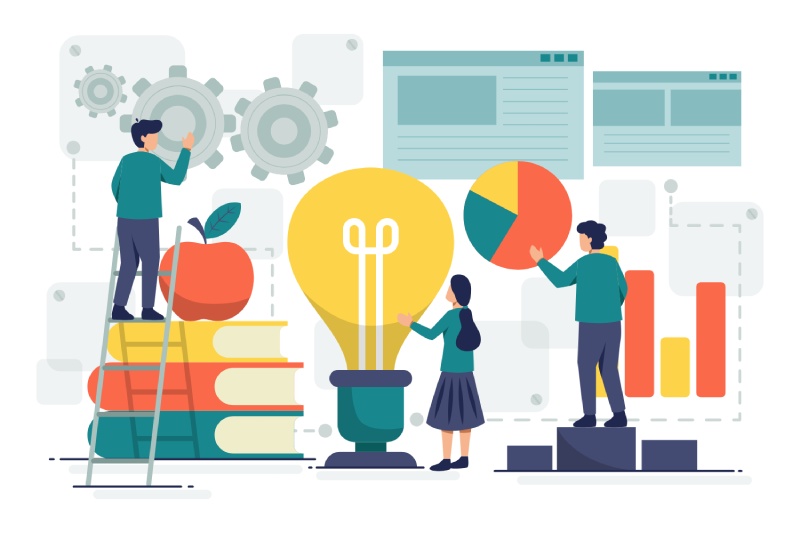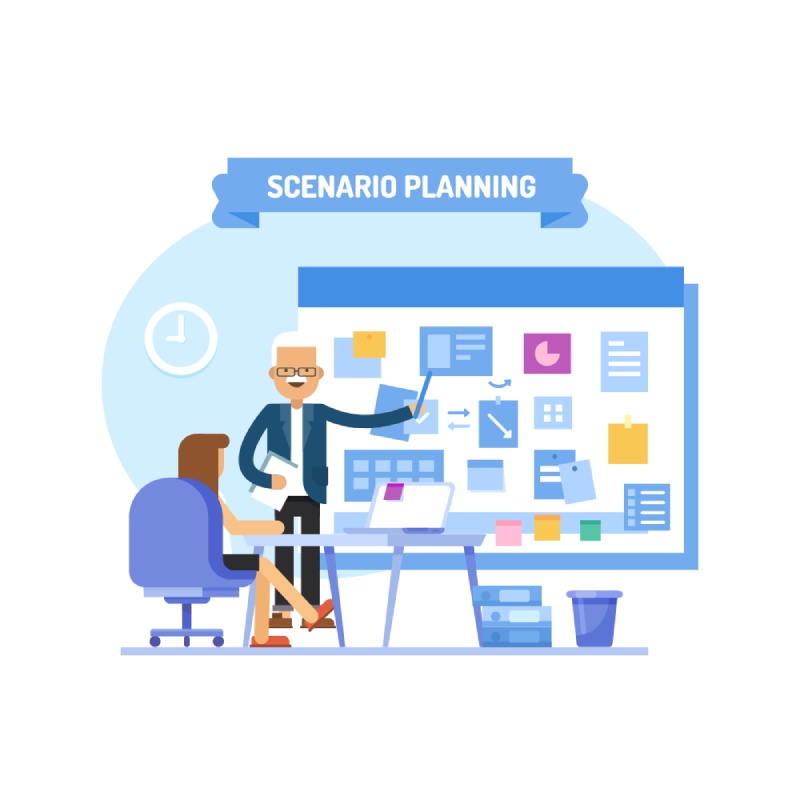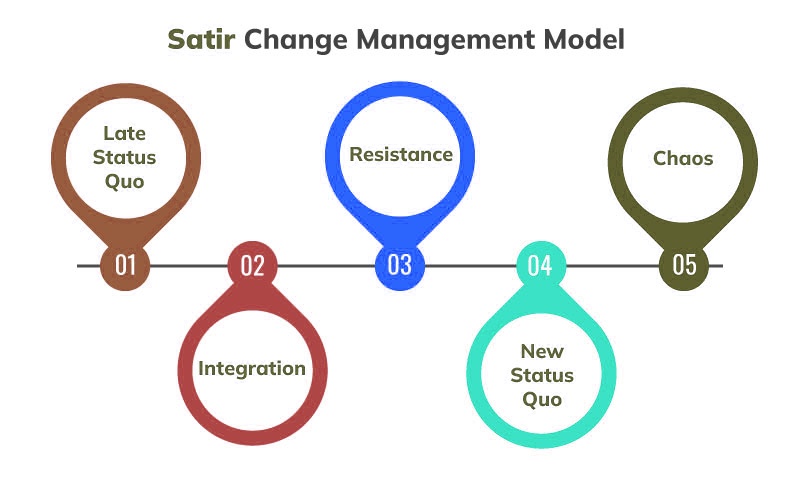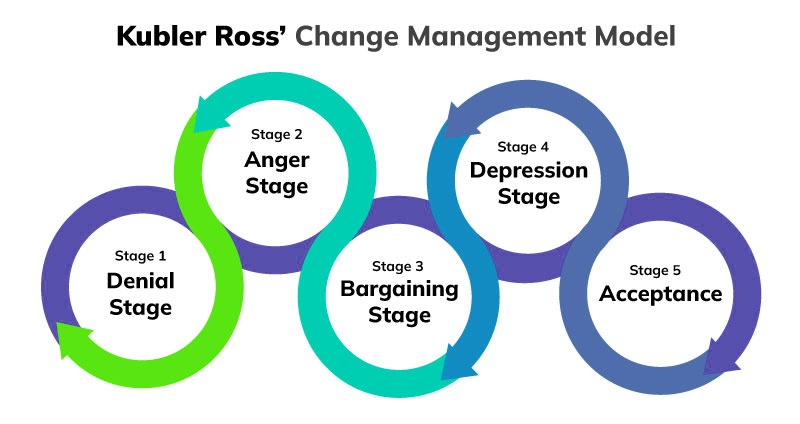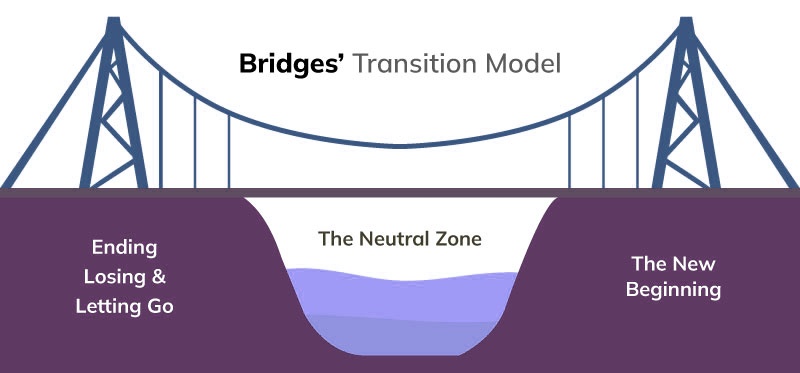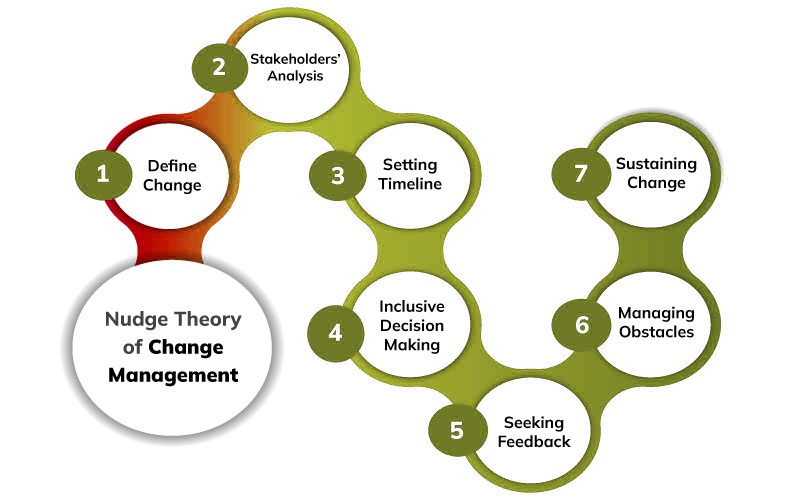Overview
ERA cycle first came into light through the book, “Beginning of Reflective Model” written by Melanie Jasper in 2013 therefore it became famous as "Jasper ERA Cycle". This is the simplest model which works quite similar to Kolb’s reflective cycle but only contains 3 stages to self-introspect naming
- Experience
- Reflection
- Action
These three components form a building block of reflective practices and underline the major occurrences from the topic for us to reflect upon. Irrespective of good or bad experiences, we might feel the need to introspect some crucial experiences that need our attention. This is where out of all the reflection models; the ERA cycle can effectively assist you in self-introspection.
Table of Contents
Through the ERA cycle, Jasper suggested that first, You experience something unusual or something happened to you for the very first time in your regular occurrences. Once you have experienced something that needs your attention after it has happened, you start reflecting upon the experience meticulously. You start introspecting the feelings you felt during that particular experience. Based on your reflection and self-analysis, you prepare for the next steps that could lead to your self-improvement while experiencing similar situations in the future.
Three stages of ERA cycle
Stage 1: Experience
This is the stage where you need to draw out all the minute details of the experience. So, some questions that can assist you with the same will be
- What, where, and when did this happen?
In this you will give the readers all the factual information about the event that will help readers understand the context of the situation. - What other aspects were involved?
In this, you will highlight the different aspects that were involved in the situation and contributed to getting the obtained result. - Was the situation contextual?
In this you will specify whether the situation was dependent on the circumstances or not. - How did you and other involved people react?
In this, you will answer by explaining the reaction of other people that were involved in the situation.
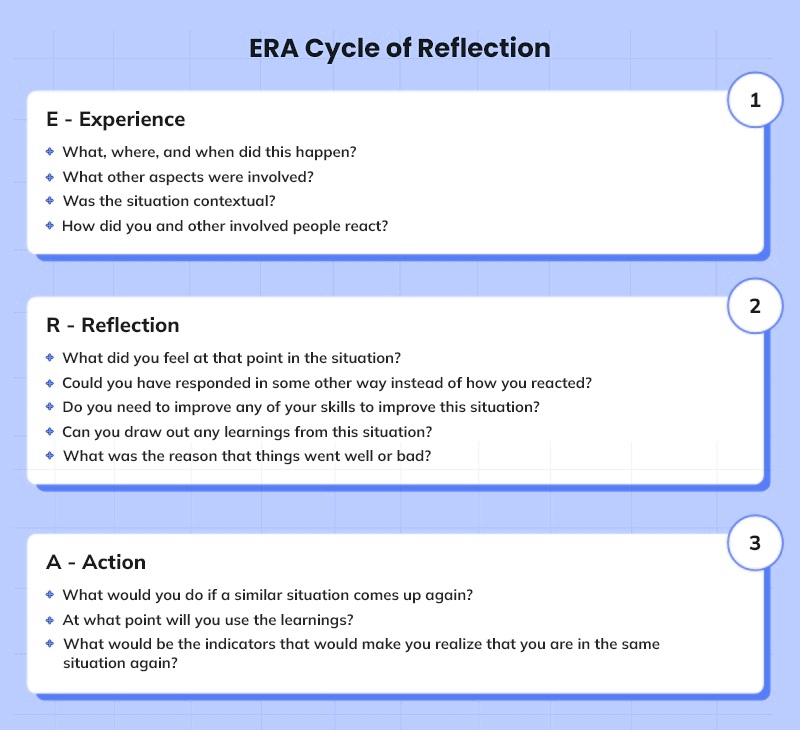
Stage 2: Reflection
This is the analysis phase. In this, you will effectively analyze your actions. So, questions that will help you in analyzing the situation are
- What did you feel at that point in the situation?
In this, you will highlight your feelings of the time when you were experiencing the situation you are reflecting upon. - Could you have responded in some other way instead of how you did react?
In this, you will highlight the alternatives of your actions or reactions in the place of action you took in the situation. - Do you need to improve any of your skills to improve your reaction in this situation?
In this, you will present the requirement of skills that could assist you in reacting more efficiently to similar situations in the future. - Can you draw out any learnings from this situation?
In this situation, you will highlight your learning from the situation you are using this reflection model in. - What was the reason that things went well or bad?
While answering this question, you will present the main reasons behind the success or failure of your actions in the situation.
Stage 3: Action
After all the introspection, through this stage, you will develop an action plan for the future occurrence of a similar situation. A few questions that can assist you at this stage are
- What would you do if a similar situation comes up again?
In this part, you will explain the future actions you will take to respond to a similar situation. - At what point will you use the learnings?
In this, you will explain the implementation of the learnings you gained from the whole situation.
Now that you have effectively understood the model and its all-main components, the next section will shed light on the reflection of my nursing experience during my first OPD in the hospital.
ERA reflection cycle’s framework example in nursing
Case assessment - This reflective example will highlight the experience of a nurse conducting OPD after her placement in hospitals. This reflective experience will draw out her challenges and her future action plan for improving her performance.
After my placement in one of the biggest hospitals in the city, after months of practice, it was the first time I was directly going to consult a patient in the Outpatient Department (OPD). I was supposed to detect the symptoms and come up with a diagnostic plan for the patient. A 50-year-old came to the OPD with an issue of low energy and fainting from time to time. Through the symptoms, I found out that there is a good possibility of low blood pressure in the patient. However, as it was my first OPD, I wanted to be double sure of every step that I was going through.So, I kept on checking my notes and I eventually got panicked and confused. Even the patient detected my nervousness and became uneasy himself. This was impacting mine as well as the performance of the hospital. Satisfaction of the patient is a core tool for tracking the performance of the hospital as well as the service that they are providing to the patient (Hussain et al., 2019). My senior was supervising my consultation and by detecting a chaotic situation, she decided to step in and finish the consultation herself.
Reflecting upon my experience, I felt that to get the consultation right, I thought it would be good that I would follow the exact template.But being under the pressure of getting things right and my supervisor standing right next to me, made me doubt my knowledge, and eventually, I started checking my notes. This is where the lack of confidence made me nervous and I got confused during the consultation. Additionally, my supervisor also gave me the same feedback that I was doing well but due to a lack of self-confidence, I got anxious and messed up during the consultation. She further added that being double sure was good, but as every patient is different, you need to keep high self-confidence. I feel that my lack of confidence and anxiousness were the main reasons I feel things went in a bad direction.
From my reflection, I learned that I would be calmer the next time during my consultation. For this, I would prefer taking deep breaths to calm myself down in case of any sort of anxiety experience. During my next consultation, I would keep confidence in myself and would trust my knowledge and expertise to plan out the diagnostic action plan for any patient. However, I also learned that I would keep revising my notes at regular intervals so that I would not need notes to be double sure at the time of consultations. This would also assist me in building self-confidence. Secondly, keeping the feedback of my supervisor in mind, I understood that every patient is different and we do not need to follow the same framework of questions while providing consultation to every patient. So, from next time, I will ensure to treat every patient as per their requirement.
Click for Another Example: Navigating Digital Transformation in the Information Age
References
Low blood pressure (hypotension) (2022) Mayo Clinic. Mayo Foundation for Medical Education and Research. Available at: https://www.mayoclinic.org/diseases-conditions/low-blood-pressure/symptoms-causes/syc-20355465 (Accessed: November 10, 2022).


